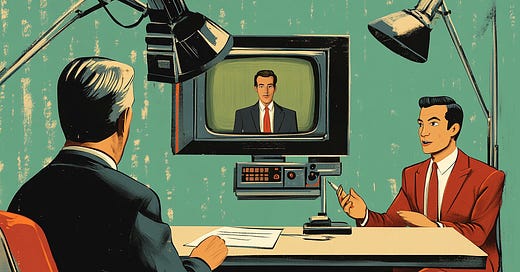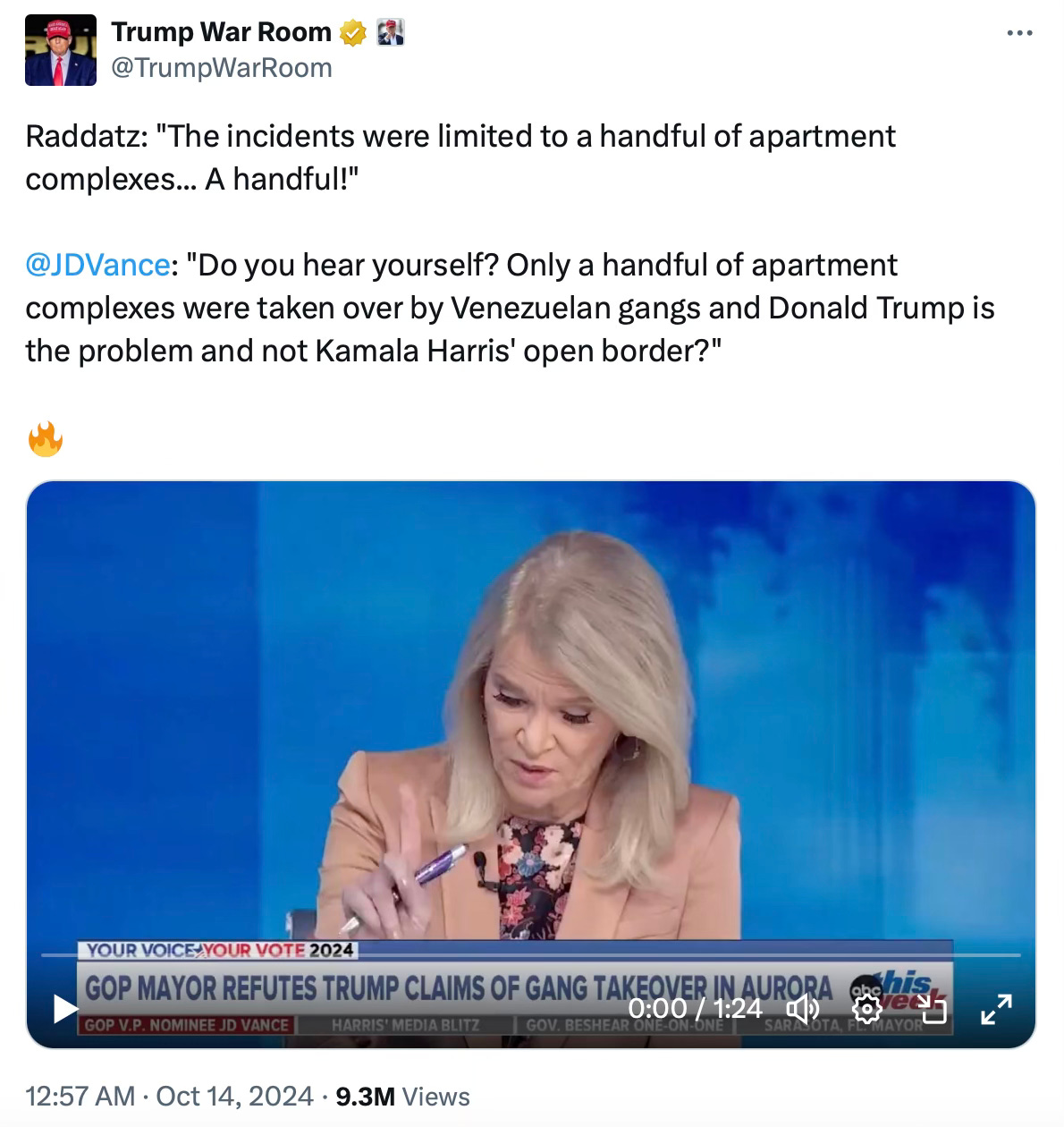American’s trust in media has continued to drop. Let’s just say, it can’t go much lower. Fresh polls show that the share of people who say they don’t trust news reporting has increased steadily in recent decades. And you don’t have to look very far to understand why.
Last month, the venerable CBS provided many teachable moments about how to lose public trust. VP Kamala Harris appeared on 60 Minutes for a campaign interview, though it was evident that her answer to at least one question was heavily edited, presumably to make her seem more coherent than she actually was. CBS refused to release a full transcript, instead needling Donald Trump for turning down an invitation to sit for an interview. While most folks understand that it is not unusual for hours or footage to be edited down for broadcast, the network drew criticism not only for its guerrilla editing, but also for its lack of transparency.
Just a couple of days later, anti-racist polemicist Ta-Nehisi Coates, whose latest book superimposes his ideas about American slavery onto the current situation in Gaza, was interviewed on CBS. One anchor suggested that Coates was overlooking the incredibly fraught and complex history of the region and asked why Coates had so little to say about the event that precipitated Israel’s campaign – the atrocities of October 7. Well, that was too much hard-hitting journalism for many at the network, with staff questioning the “tone” of the interview. The matter was passed on to the Race and Culture unit (yes, CBS has one) and a trauma expert was booked to help the verklempt newsmakers process what had happened.
But it’s not just networks that are the victims of their own ideologies.
With election day now on our doorstep, several large newspapers upset readers by not endorsing any presidential candidate. It’s debatable whether the endorsement of the LA Times or Washington Post or any other media outlet makes any difference to the result, but these publications have consistently backed Democrat candidates in the last few decades. The outcry from their readers and liberals (perhaps I repeat myself?) reportedly resulted in droves of canceled subscriptions and a few journalists quit their jobs in protest (though not as many as had threatened to).
Given the amount of revenue he is losing, Jeff Bezos, owner of The Washington Post, wants to keep the dream of neutrality alive. He wrote an op-ed giving his reasons for WaPo’s lack of endorsement. Endorsing one candidate gives the “perception of bias”, he noted. He said the paper needed to gain public trust since “increasingly we talk only to a certain elite. More and more, we talk to ourselves…We must be accurate, and we must be believed to be accurate.”
Now, none of this is a problem if newsrooms and publications nailed their colors to the mast and gave up the pretence of objectivity and neutrality. Newspapers throughout history were set up to spread the message of a particular party – the worldview of the publication was fairly evident. It wasn’t until the 20th century that the idea of journalistic objectivity became a goal. First journalists were fact-checked for bias, and now, everyone is fact-checked. But fact-checking initiatives have backfired somewhat, actually “fomenting distrust in all news.” It may be that we are soon to return to an openly partisan media environment, as people turn to alternative sources for news.
Perhaps we could ask the folks at our legacy media institutions the question vice presidential candidate J D Vance asked one journalist when she dismissed complaints about foreign gangs taking over apartment blocks in Colorado: Do you hear yourself?
If they could take a beat, perhaps journalists would do a better job at giving Americans what they need from the media. It’s fair to say some of our chattering class do hear themselves, yet they are true believers, determined to promote a narrative rather than humbly report facts. As with the Hunter Biden laptop, the origins of covid, the covering up of the decline of the President, the lambasting of doubters, the marginalizing of alternate explanations, the media class have made their bed. Bezos may hope for a return to clarity and openness, but that ship may have sailed. If journalists face no consequences for their lying, I suppose they will continue to do so. If the media establishment won’t police their own, then the audience will vote with its feet.
But rather than despair, online media commentary has pointed out that the mainstream media’s grip on America seems to be failing. (Who got more help for their campaign: Trump for appearing on Joe Rogan or Harris for being interviewed by 60 Minutes?) The rise in popularity of podcasts and other independent media could usher in a very different information landscape. In some ways it is a sad indictment of our fractured social compact that we can all collect our own sets of facts – convincing anyone of anything may be more difficult. Yet, that is not so far from where we are right now. Just because it’s a storied publication doesn’t mean you can check discernment at the door.
The Federalist’s John Daniel Davidson pointed out that low trust in media is a good thing when it’s lying. “Mass media don’t deserve our trust and broad distrust of them is a good sign. It means most of us aren’t brainwashed.” If you assume its misinformation, things can only get better from there!






